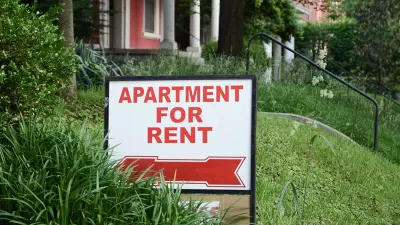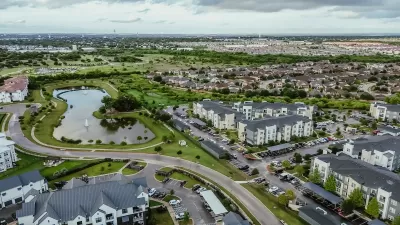Most communities lack a way of collecting real-time data on whether landlords are complying with rules. A rental registry could change that.

Being a landlord is a unique line of work. In few sectors can someone assume so much responsibility with so little training.
In most cases, a downpayment and a good credit score is all it takes to buy and begin managing a rental property, the place where tenants eat, sleep, play, raise their children, and—increasingly—work. Because the bar to entry is so low, many landlords are unaware of their responsibilities, or they are actively malicious and exploitative; they may increase rents beyond legal limits or make unenforceable eviction threats, for example, and they often get away with it because tenants typically know even less about their rights. Most decisions that landlords make about their tenants’ housing situations are never approved, reviewed, or even witnessed by an outside party. It’s a system designed for abuse.
As renters face illness and job loss due to the COVID-19 pandemic, a confusing patchwork of state and local eviction protections is the only thing staving off homelessness for hundreds of thousands, perhaps millions, of vulnerable households. Despite the importance of these protections, public officials lack real-time data to know whether landlords are complying with the rules or flouting them—not just for recent eviction protections, but also pre-existing regulations like building code requirements and rent control.
As a result, enforcement is spotty at best. A National Housing Law Project survey found that 91 percent of legal aid and civil rights attorneys reported that they have witnessed illegal evictions in their area. The solution to this problem is a rental registry, a simple online tool to track basic information about rental housing and the treatment of tenants. With minimal cost and hassle, rental registries can add much-needed transparency to the landlord-tenant relationship, keeping landlords accountable and helping renters stay safe and stable in their homes.
Rental registries already exist in cities across the country, including Raleigh, Seattle, Minneapolis, eight cities in California, and at least 20 in Texas. The costs on the city’s end are modest. San Francisco recently estimated a $300,000 startup cost with annual costs of around $1.7 million to $3.6 million per year. Most existing registries were created only to support code enforcement activities, but a simple set of requirements could allow them to do much more.
For instance ...
FULL STORY: We Need Rental Registries Now More Than Ever

Alabama: Trump Terminates Settlements for Black Communities Harmed By Raw Sewage
Trump deemed the landmark civil rights agreement “illegal DEI and environmental justice policy.”

Planetizen Federal Action Tracker
A weekly monitor of how Trump’s orders and actions are impacting planners and planning in America.

The 120 Year Old Tiny Home Villages That Sheltered San Francisco’s Earthquake Refugees
More than a century ago, San Francisco mobilized to house thousands of residents displaced by the 1906 earthquake. Could their strategy offer a model for the present?

Ken Jennings Launches Transit Web Series
The Jeopardy champ wants you to ride public transit.

BLM To Rescind Public Lands Rule
The change will downgrade conservation, once again putting federal land at risk for mining and other extractive uses.

Indy Neighborhood Group Builds Temporary Multi-Use Path
Community members, aided in part by funding from the city, repurposed a vehicle lane to create a protected bike and pedestrian path for the summer season.
Urban Design for Planners 1: Software Tools
This six-course series explores essential urban design concepts using open source software and equips planners with the tools they need to participate fully in the urban design process.
Planning for Universal Design
Learn the tools for implementing Universal Design in planning regulations.
Clanton & Associates, Inc.
Jessamine County Fiscal Court
Institute for Housing and Urban Development Studies (IHS)
City of Grandview
Harvard GSD Executive Education
Toledo-Lucas County Plan Commissions
Salt Lake City
NYU Wagner Graduate School of Public Service





























